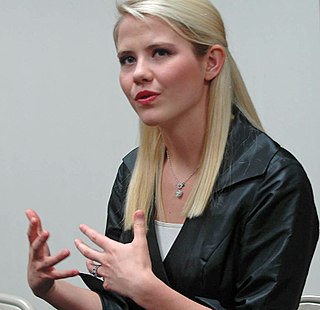A Quote by Bill Henson
What happens with experiences that really move us deeply, that really effect us? They make the world new again. What it does is it heightens our sense of mortality.
Related Quotes
The important element is the way in which all things are connected. Every thought and action sends shivers of energy into the world around us, which affects all creation. Perceiving the world as a web of connectedness helps us to overcome the feelings of separation that hold us back and cloud our vision. This connection with all life increases our sense of responsability for every move, every attitude, allowing us to see clearly that each soul does indeed make a difference to the whole.
Mortality is a period of testing, a time to prove ourselves worthy to return to the presence of our Heavenly Father. In order for us to be tested, we must face challenges and difficulties. These can break us, and the surface of our souls may crack and crumble-that is, if our foundations of faith, our testimonies of truth are not deeply embedded within us.
All our efforts to guard and guide our children may just get in the way of the one thing they need most from us: to be deeply loved yet left alone so they can try a new skill, new slang, new style, new flip-flops. So they can trip a few times, make mistakes, cross them out, try again, with no one keeping score.
Through the information the Pleiadians bring, we come into a new innate understanding of ourselves, and a new remembering. That really allows us to move forward on our path with that information. It's empowering. It puts things in perspective, back into place. It makes sense of everything that we are and what we're doing here, and what we have done and where we are going.
One of the things I'm trying to do over and over again in my books is create new mythologies, create new ways to understand the complexity of the world. I think what mythology does is impress upon chaotic experience the patterns, hierarchies and shapes which allow us to interpret the chaos and make fresh sense of it.
Love is the movement within life that carries us, that enables us, that causes us to break out of what Alan Watts calls the “skin-encapsulated ego.” Without love, we are self-centered, but love enables us to move the center of our lives outside our ego. Therefore it expands our lives and, needless to say, enriches it. Any human being would give anything to love or be loved. When it really happens, it is like heaven on earth.
Artists use frauds to make human beings seem more wonderful than they really are. Dancers show us human beings who move much more gracefully than human beings really move. Films and books and plays show us people talking much more entertainingly than people really talk, make paltry human enterprises seem important. Singers and musicians show us human beings making sounds far more lovely than human beings really make. Architects give us temples in which something marvelous is obviously going on. Actually, practically nothing is going on.
Whatsoever accidents or qualities our senses make us think there be in the world, they are not there, but are seemings and apparitions only. The things that really are in the world without us, are those motions by which these seemings are caused. And this is the great deception of sense, which also is by sense to be corrected. For as sense telleth me, when I see directly, that the colour seemeth to be in the object; so also sense telleth me, when I see by reflection, that colour is not in the object.
My first policy move would be to try to get a conversation going in the US about what people stand for and what we really want. Do we want to keep adding people to the world and to our country until we move to a battery-chicken kind of existence and then collapse? Or do we want to think hard about what really is valuable to us, and figure out how many people we can supply that to sustainably?
Someone tells us that God loves us as a father loves his children. We are reassured. But then something awful happens. Some qualification is made.... We are reassured again. But then perhaps we ask: what is this assurance of God's (appropriately qualified) love worth, what is this apparent guarantee really a guarantee against? Just what would have to happen not merely (morally and wrongly) to tempt but also (logically and rightly) to entitle us to say "God does not love us" or even "God does not exist"?




































